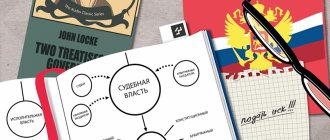The persons participating in the case are the participants in the legal proceedings who are legally interested in the resolution of the case, acting in the process on their own behalf, and, due to their interest, are endowed with the right to perform procedural actions (expressions of will) that affect the development and completion of the process.
The persons participating in the case are the main participants in the civil process and are directly related to the civil case being resolved by the court. The procedural activity of the persons participating in the case actively influences the entire course of the process, the movement of the process, its transition from one stage to another depends on their actions, they are all interested in the outcome of the case.
The criterion for classifying a participant in legal proceedings as a person participating in the case:
- whether he has a legal interest in the outcome of the case.
More details
Legal interest in the outcome of the case is the expected legal result of the consideration and resolution of the case for a given person, based on the law.
For example, the plaintiff expects the process to satisfy the claims, the defendant expects the claim to be rejected. For the prosecutor participating in the case, a legal interest in the outcome of the process is expressed in anticipation of a legal and reasoned decision by the court.
The persons participating in the case have different legal interests and are divided into three types:
- personal interest , which refers to the importance of the court decision to protect the interests of the person directly involved in the case;
- material and legal interest , manifested in the fact that as a result of a court decision, the participants in the case either acquire any property or non-property benefits or lose them;
- state (or public) interest , which is the basis for participation in the case by the prosecutor, state bodies, local governments, as well as organizations and citizens acting in the process to protect the rights, freedoms and legitimate interests of other persons.
Thus, the persons participating in the case are those participants in the process who
- have a legal interest in the consideration and resolution of a civil case by the court,
- their actions influence the course and development of the process,
- have certain procedural rights and
- bear procedural duties on which the procedural position of each of them depends.
Incorrect determination of the list of persons participating in the case entails the cancellation of the decision in the case.
The subjects of the process become persons participating in the case at the moment the case arises and they are involved in the process as specific participants, whose procedural status is determined by the law.
Art. 34 of the Code of Civil Procedure of the Russian Federation does not define the concept of persons participating in the case, limiting itself to only listing their composition.
Persons participating in the case are divided into two groups:
1) speaking in defense of their own interests and on their own behalf (have both substantive and procedural legal interests in the outcome of the case) :
- parties (plaintiff and defendant);
- third parties (those making and not making independent claims).
2) speaking in the process on their own behalf, but in defense of the interests of other persons (they have only a procedural and legal interest in the outcome of the case) :
- prosecutor;
- persons who apply to the court for the protection of the rights, freedoms and interests protected by law of other persons or who enter into the process in order to give an opinion on the grounds provided for in Art. 4, 46 and 47 Code of Civil Procedure of the Russian Federation;
- applicants and other interested parties in cases of special proceedings;
- applicants and other interested parties in cases arising from public legal relations.
Rights and obligations of persons participating in the case
Persons participating in the case, having a certain legal interest, are endowed with an appropriate amount of rights and responsibilities in the process in order to influence the outcome of the case. The rights and obligations of persons participating in the case are set out in Art. 35 39 Code of Civil Procedure.
All persons participating in the case have the right:
- get acquainted with the case materials, make extracts from them, make copies;
- challenge;
- present evidence and participate in its research;
- ask questions to other persons participating in the case, as well as witnesses, experts and specialists;
- file petitions, including requests for evidence;
- give explanations to the court orally and in writing; present to the court your arguments and opinions on all issues arising during the trial;
- object to the requests and arguments of other persons participating in the case;
- appeal court decisions (decisions, rulings);
- submit documents to the court both on paper and in electronic form, including in the form of an electronic document signed with an electronic signature.
At the same time, Art. 35 of the Code of Civil Procedure indicates that persons participating in the case may use other procedural rights provided by the legislation on civil proceedings, as well as use the rights granted to them by other federal laws.
With regard to the duties of persons participating in the case, the Code of Civil Procedure specifies that they must conscientiously exercise all procedural rights, as well as bear other procedural duties established by the Code of Civil Procedure and other federal laws. Failure to fulfill obligations will result in adverse consequences provided for by law.
Characteristic
During the consideration of cases falling under the provisions of the Civil Code, participants in the proceedings can be divided into categories, depending on the degree of their interest. The first category includes the subject putting forward the demands - the plaintiff, and the citizen responding to them - the defendant. Their inclusion in a separate group is quite understandable. Each of them acts as an interested party. This means that their participation in the proceedings is dictated by the desire to protect/restore their rights.
The outcome of the dispute is extremely important to them. The second category includes those who have not personal, but professional, public, etc. interests as a result of the proceedings. Such participants, in particular, include representatives of local authorities, the prosecutor, and so on. Each of them also acts as an interested party in civil proceedings. However, they do not expect personal benefit from this. Subjects not classified in either the first or second categories are ordinary participants in the proceedings. They, in particular, can be experts, translators, witnesses, etc.
Classification of persons participating in the case by composition and procedural rights
Classification of persons participating in the case by composition
Civil procedural legislation does not provide a general definition of the concept of persons participating in the case, limiting itself to only listing the list of persons participating in the case (Articles 34, 38, 42-43, 45-47 of the Code of Civil Procedure of the Russian Federation). According to the law, the persons participating in the case are (Article 34 of the Code of Civil Procedure of the Russian Federation):
- sides;
- third parties;
- prosecutor;
- persons who apply to the court for the protection of the rights, freedoms and interests protected by law of other persons or who enter into the process in order to give an opinion on the grounds provided for in Art. 4, 46 and 47 Code of Civil Procedure of the Russian Federation;
- applicants and other interested parties in cases of special proceedings.
Who is meant by an interested party in the arbitration process?
Lawyer Antonov A.P.
In Art. 4 of the Arbitration Procedure Code of the Russian Federation, an interested party is understood as a person who applies to the arbitration court for the protection of his violated or disputed rights and legitimate interests. That is, this is the applicant (plaintiff). For example, in the Resolution of the Eighth Arbitration Court of Appeal dated June 29, 2017 N 08AP-8196/2017 in case N A46-13659/2016, the court indicated that an analysis of the provisions of the Arbitration Procedure Code of the Russian Federation allows us to come to the conclusion that the term “interested parties” is used in different meanings: as the initiator of the dispute (for example, according to Part 2 of Article 191 of the Arbitration Procedure Code of the Russian Federation, proceedings in cases of challenging normative legal acts are initiated on the basis of statements from interested parties who have applied for recognition of such an act as invalid), the responding party to the dispute (Article 40 of the Arbitration Procedure Code of the Russian Federation) , persons participating in the consideration of the dispute (Part 2 of Article 194 of the Arbitration Procedure Code of the Russian Federation). In Art. 40 of the Arbitration Procedure Code of the Russian Federation, the list of persons participating in the case includes a separate procedural person - an interested party (in cases of special proceedings, in cases of insolvency (bankruptcy) and in other cases provided for by the Arbitration Procedure Code of the Russian Federation). That is, these are non-exploratory types of production. The term “interested person” in cases arising from administrative and other public legal relations is defined in Part 1 of Art. 47 CAS RF. Thus, an interested party is understood as a person whose rights and obligations may be affected when resolving an administrative case. Interested persons have the right, before the adoption of a judicial act that ends the consideration of an administrative case in the court of first instance, on their own initiative to enter into an administrative case on the side of the administrative plaintiff or administrative defendant (Part 2 of Article 47 of the CAS RF). For example, when considering administrative cases challenging the results of determining the cadastral value (Part 3 of Article 247 of the CAS of the Russian Federation), this may be the owner, co-owner, former owner, co-tenant of the property (clause 7 of the Resolution of the Plenum of the Supreme Court of the Russian Federation dated June 30, 2015 N 28 “On some issues that arise when courts consider cases challenging the results of determining the cadastral value of real estate objects”). The circle of interested parties in bankruptcy cases in relation to the debtor (individual or legal entity), the arbitration manager and creditors is defined in Art. 19 of the Federal Law of October 26, 2002 N 127-FZ “On Insolvency (Bankruptcy)” (hereinafter referred to as the Federal Law “On Insolvency (Bankruptcy)”). Interested parties in relation to the debtor-citizen, in particular, include the spouse, relatives in the direct ascending and descending line, sisters, brothers and their descendant relatives, parents, children, sisters and brothers of the spouse. Interested parties in relation to the arbitration manager in certain cases are the persons specified in paragraphs 1 and 3 of Art. 19 Federal Law “On Insolvency (Bankruptcy)”. Interested parties in relation to the debtor - a legal entity are recognized: a person who, in accordance with Federal Law dated July 26, 2006 N 135-FZ “On the Protection of Competition,” is included in the same group of persons as the debtor; a person who is an affiliate of the debtor. Interested parties in relation to the debtor - a legal entity are also recognized: the head of the debtor, as well as persons included in the board of directors (supervisory board), collegial executive body or other management body of the debtor, chief accountant (accountant) of the debtor, including these persons, released from their duties within a year before the initiation of bankruptcy proceedings or until the date of appointment of a temporary administration of a financial organization (whichever date came earlier), or a person who has or had during the specified period the opportunity to determine the actions of the debtor; persons who are with the individuals specified in paragraph. 2 p. 2 art. 19 Federal Law “On Insolvency (Bankruptcy)”, in the relations specified in clause 3 of Art. 19 Federal Law “On Insolvency (Bankruptcy)”; persons recognized as interested in the debtor’s transactions in accordance with civil legislation on the relevant types of legal entities. In the Resolution of the Arbitration Court of the Moscow District dated March 24, 2020 N F05-14131/2018 in case N A40-91415/2017, the court recognized an individual entrepreneur who, on the basis of an assignment agreement, received the right to claim receivables collected in favor of a legal entity declared bankrupt, an interested party within the framework of a bankruptcy case, since his rights and interests were affected as a result of bidding for the sale of the debtor’s property in another court case. In cases of insolvency (bankruptcy), interested parties may also be:) a creditor, one of the parties to the agreement that is being disputed, the heir of the debtor (Resolution of the Arbitration Court of the Moscow District dated 01.02.2018 N F05-16005/2016 in case N A40-184237/ 2015 (Decision of the Supreme Court of the Russian Federation dated April 26, 2018 N 305-ES17-604(11) refused to transfer the case for review in cassation proceedings of this Resolution)). Thus, interested parties are all persons (other than the applicant) involved in the case and having a legal interest (in cases of special proceedings, insolvency (bankruptcy) cases and cases arising from administrative and other public legal relations). Another semantic meaning of the term “interested person” in the Arbitration Procedure Code of the Russian Federation is a person whose interest in the arbitration process is assumed, who has not yet been procedurally involved in the case, but his rights and interests may be affected when a judicial act is adopted (Part 3 of Article 222.8 and part 2 of article 221 of the Arbitration Procedure Code of the Russian Federation). For example, in paragraph 34 of the Resolution of the Plenum of the Supreme Court of the Russian Federation dated March 29, 2016 N 11 “On some issues arising when considering cases of awarding compensation for violation of the right to trial within a reasonable time or the right to execution of a judicial act within a reasonable time” it is indicated that the court, in the determination to accept the application for proceedings, sets a deadline for the specified persons to provide explanations, objections and (or) arguments regarding the application for compensation, as well as other evidence necessary for the consideration of the case, or decides on the issue of involving them in participation in the case as interested parties persons, third parties (parts 2, 3 and 4 of article 63, clause 5 of part 3 of article 135 of the Code of Arbitration Procedures of the Russian Federation, article 66, clause 1 of part 1 of article 135 of the Arbitration Procedure Code of the Russian Federation). The resolution of the Arbitration Court of the Far Eastern District dated January 26, 2016 N F03-6127/2015 in case No. A73-3492/2012 is interesting in that one of the parties to the trial stated that the Arbitration Court of the Far Eastern District itself is an interested party in this case, because . has the right to operationally manage shares in a disputed real estate property that has not yet been completed. You should also pay attention to the meaning of the term “interested person”, which the legislator used for a better understanding of the Code, so as not to overload the text with an unnecessary listing of all persons involved in the case. That is, these are all persons participating in the arbitration process, and persons whose interests are somehow affected in the process of judicial proceedings (for example, Art. 6.1, 99, 136, 186 of the Arbitration Procedure Code of the Russian Federation).
Sincerely, lawyer Anatoly Antonov, managing partner of the law firm Antonov and Partners.
Still have questions for your lawyer?
Ask them right now here, or call us by phone in Moscow +7 (499) 288-34-32 or in Samara +7 (846) 212-99-71 (24 hours a day), or come to our office for a consultation (by pre-registration)!
Plaintiff
He also acts as an interested party. The plaintiff believes that his rights have been violated and, by filing an application, seeks to restore them. In the claim, he indicates all the circumstances with which he does not agree, as well as the demands addressed to the defendant. In this case, there is a personal interest in the outcome of the proceedings. The decision made by the court in satisfying the claim will help the plaintiff restore his rights. If the decision is not made in his favor, then the situation will remain unchanged. Accordingly, in order to defend his case, the plaintiff must use all possible legal means. He has the right to provide evidence, petition for the involvement of witnesses, specialists, experts, and so on.
Third parties making independent claims regarding the subject of the dispute
A person may enter into a process that has arisen between other entities to protect his right. Such a person is called a third party making independent claims on the subject of the dispute .
The legal position of a third party who makes independent claims regarding the subject of the dispute is equalized with the procedural position of the plaintiff (Article 42 of the Code of Civil Procedure of the Russian Federation), it seeks protection and requires that the court recognize the disputed right not for the plaintiff and not for the defendant, but only for him, and seeks a decision in his favor.
The purpose of the participation of third parties making independent claims in the process:
- protection of one’s rights regarding the subject of the dispute.
The claims of this third party are equivalent to the claims of the original plaintiff against the defendant, and the procedural position of a third party with independent demands is very similar to the procedural position of a co-plaintiff.
Distinctive features of a third party with independent claims from a co-plaintiff:
- the demands of co-plaintiffs are always addressed to the defendant and are not mutually exclusive;
- a third party always enters into a process that has already begun;
- the third party’s claims are of an independent nature (arise from other or similar grounds, but not the same as those of the plaintiff);
- the claim of the specified third party cannot be filed jointly with the original claim;
- the claims of the plaintiff and the third party, aimed at the same object of dispute, exclude each other;
- the plaintiff and the third party are in a dispute between themselves.
The third party and the plaintiff are supposed subjects of material legal relations that are different in content, although they arose in relation to the same object.
Co-plaintiffs are alleged participants in a single complex multi-subject legal relationship with mandatory complicity, or several, but similar in content, material legal relations with optional complicity. Their demands are not mutually exclusive.
The main thing for the correct determination of the procedural position of a third party who makes independent claims regarding the subject of the dispute is the question of whether he makes independent claims regarding the subject of the dispute. As a rule, the claims of the plaintiff and a third party with independent claims may not completely coincide in their content and scope.
The practice of considering civil cases with the participation of third parties indicates that a claim by a third party making independent claims can, as a rule, be brought against both parties to the original dispute, i.e. both the plaintiff and the defendant. It is important for him to defend his independent right to the subject of the dispute during the consideration of the dispute.
Comment
In the literature, this opinion is supported by the majority of scientists who note that it is controversial to decide which of the original parties (plaintiff or defendant) is sued by a third party making independent claims regarding the subject of the dispute. However, based on the essence of the disputed legal relationship, it should be recognized that “the entry of a third party cannot but entail a dispute not only with the defendant who has the disputed property, but also with the defendant who lays claim to this property.” This rule applies to a greater extent to claims for award, in which a third party may bring a claim against both parties.
A third party who makes independent demands regarding the subject of the dispute on both parties is essentially himself a party to the disputed case and has all the rights and obligations of a party.
The entry into the process of a third party filing independent claims occurs on the basis of a court ruling. Their entry into the process can occur:
- on their own initiative,
- at the request of the parties
already at the stage of preparing the case for trial.
The law emphasizes that in relation to persons making independent claims regarding the subject of the dispute, the judge issues a ruling recognizing them as third parties in the case under consideration or refusing to recognize them as third parties, against which a private complaint can be filed (Article 42 of the Code of Civil Procedure of the Russian Federation) .
If a third party is recognized as making independent claims regarding the subject of the dispute, it acquires the right to file a claim, i.e. must have all the prerequisites for the right to bring a claim. At the same time, the procedure for exercising (realizing) the right to file a claim must be observed.
The judge may
- refuse to accept a statement of claim to a third party (Article 134 of the Code of Civil Procedure of the Russian Federation),
- return his statement of claim (Article 135 of the Code of Civil Procedure of the Russian Federation) or
- leave the statement of claim without movement (Article 136 of the Code of Civil Procedure of the Russian Federation).
At the same time, if a third party making independent demands does not exercise its right to enter into the process with independent demands, the judge cannot involve him in participation in the case. In this case, a third party may demand protection of his violated right by filing an independent claim against the party in the proceeding in whose favor the court decision was made.
Responsibilities of participants in a civil case
The rules of civil procedural law additionally regulate the obligations of participants in legal proceedings.
In particular, general responsibilities include:
| Norm of the Code of Civil Procedure of the Russian Federation | The essence |
| clause 1 art. 35 | Do not abuse your rights and conscientiously perform your assigned duties |
| clause 2 art. 35 | Fulfill duties established by law |
| Art. 158 | Required to follow the rules of behavior in the courtroom |
| Part 2 Art. 19 | When filing an application to challenge, for example, a judge, you must explain the reason for your request |
| Art. 118 | If you change your place of residence, you must notify the court of the change of address. |
| clause 2 art. 167 | Inform the court about the impossibility of appearing for the hearing of the case |
| clause 1 art. 56 | It is necessary to confirm the facts referred to in the appeal |
In addition, there are a number of specific obligations relating to specific actions:
| Norm of the Code of Civil Procedure of the Russian Federation | The essence |
| Art. 131 | When drawing up statements of claim and petitions, you should adhere to the standards of content and drafting of documents |
| Art. 123 | Pay state duty only in cases where this obligation is provided for by law |
| Art. 132 | Attach to the statement of claim the documents specified in the claim as confirmations and evidence. |
These duties are considered special due to the fact that only certain participants in the process must perform this action. For example, when filing an application in court, the plaintiff must attach copies of documents.








